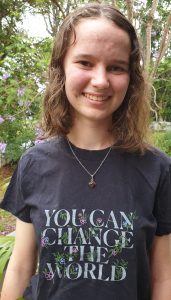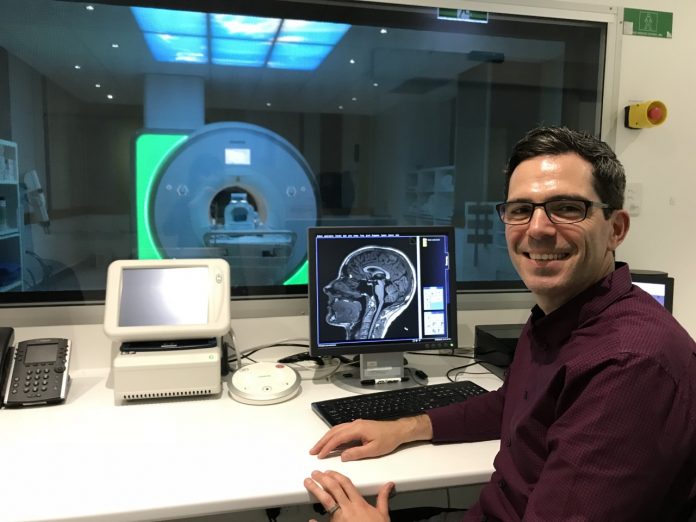Sunshine Coast brain scientists have made a major breakthrough in a world-first study of local adolescents’ brains.
Researchers uncovered that part of the brain may shrink in adolescents who experience psychological distress in their lives.
The discovery could lead to new ways of diagnosing mental disorders, using scans to find physical changes in the brain.
The study is one of a number underway at The Sunshine Coast Mind and Neuroscience – Thompson Institute.
The world-class hub in Kawana, established by the University of the Sunshine Coast, is at the forefront of mental health research in Australia, publishing numerous scientific papers.
Their current work with young people, the Longitudinal Adolescent Brain Study (LABS), is significant because more than half of all mental health problems have their onset before the age of 14.
Mental disorders are also one of the leading causes of illness globally, affecting 450 million people.
Like this story? Get more just like it direct to your inbox by subscribing to our free daily news feed: Go to SUBSCRIBE at top of this article to register
Launched in 2018, LABS involves scanning the brains of young people aged 12 to 17 years to track physical changes over five years and better understand the onset of mental illness.
Researchers recruited 72 local adolescents and are aiming to expand to 500 youths.
Daniel Hermens, Professor of Youth Mental Health and Neurobiology, said his team’s work was considered a world-first because of the frequency with which young people turned up for an MRI brain scan – every four months.
In other studies around the world, brain examinations could be spaced out as much as 12 months.
For the past two years, adolescent volunteers have been undergoing regular MRI scans, interviews and questionnaires.
Enough time has passed to have noted some changes in the structure of the brains and correlate those changes with what’s been happening in their lives.
Prof Hermens said one of the first things they uncovered was a link between psychological distress and a part of the brain shrinking.
The section of brain in question is called the hippocampus, an area that regulates emotion, motivation, learning and memory.

The hippocampus (pictured above) is a small seahorse-shaped structure embedded deep in the temporal lobe.
The LABS researchers found the hippocampus was “significantly reduced” in those with higher levels of psychological distress.
“The part of the brain that changes, the hippocampus, is particularly vulnerable to stress, especially chronic stress,” said Prof Hermens.
“Short-term stress is good but when the condition is persistent the part of the brain most likely to change first is the hippocampus.
“So we measured psychological distress and the size of the hippocampus and increased stress was associated with a smaller hippocampus.”
The link could enable doctors to find visual signs of mental health disorders and intervene to prevent an illness from getting worse later in life.
“Researchers like us are working on ways to utilise information from brain scans in order to determine if someone is at an increased risk of having a disorder or helping clinicians confirm a disorder,” Prof Hermens said.
“Also brain scan information can be used to help clinicians determine which treatment or intervention an individual may best respond to, as well as help them monitor the effects of treatments.”
He said the current “gold standard” for diagnosing mental disorders was using a checklist of symptoms.
Prof Hermens said reversing negative brain changes to prevent full-blown mental illness in the future could be as simple as improving diet, sleep and exercise.
“These can all work to increase brain health, especially the hippocampus. Exercise and diet are interventions that can change the hippocampus.”
Diet is one factor already proven to impact the size of the hippocampus, with the unhealthy Western diet associated with a smaller hippocampus and risk of depression.
Exercise has also been found to increase the hippocampus and improve memory function.
“If you have a good diet, follow moderate to vigorous exercise and have good sleep-wake cycle you have a decreased risk of depression,” said Prof Hermens.

Prof Hermens said more teenagers were being sought for the five-year LABS project which would investigate a range of other brain mysteries.
Fourteen-year-old Noosa student Tiya Worrall (pictured) signed up at the start of the program and has undergone seven scans, hoping to help make a difference.
Tiya said she was interested in the brain and its workings but also concerned about the mental health of young people and suicide rates.
“I thought it would be good to be part of it because they are doing research to help stop people killing themselves.”
STAY TUNED to sunshinecoastnews.com.au for more stories about our world-class Thompson Institute.





